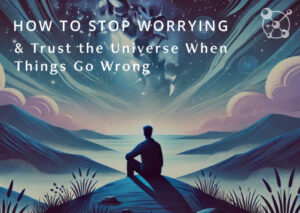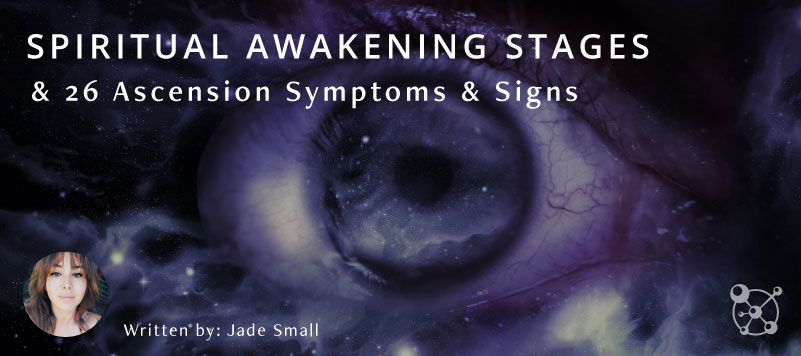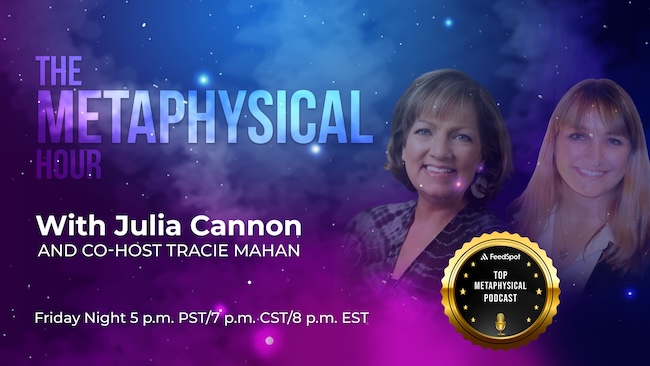You may have been feeling like everything in your life is turning inside out. No longer do you feel safe and secure in your perception of the world, and your once-loved belief systems seem to clash with more recent revelations. A spiritual journey can be very confusing, not to mention overwhelming. there are many spiritual signs that you may be going through a spiritual awakening, but it’s hard to tell.
Table of Contents
What is a spiritual awakening? Today we are going to highlight the seven different spiritual awakening stages and symptoms so that you may understand what you are going through, including dark night of the soul stages. Bringing awareness to your spirituality can facilitate the process. So, get comfortable, and let’s dive right in.
The Spiritual Awakening process: 8 Spiritual Awakening stages
Seeing as spirituality is a personal journey that cannot be matched or compared to anyone else’s, there is no definitive amount of stages to a spiritual awakening journey. Some spiritual teachers say there are five phases, and others talk about 8 different levels of spiritual awakening. Today we are going to talk about the seven stages of awakening.
Stage 1: Awakening
The first stage in the process of spiritual awakening is the point at which you start to question everything. This is more than just intellectual curiosity—it’s a profound shift in perception. You begin to see life from an entirely different angle, often marked by a series of mind-blowing realizations. Suddenly, you recognize the habits, relationships, and beliefs that no longer serve you. It may feel disorienting, yet it’s a sign that your inner consciousness is starting to unfold. This new awareness marks the beginning of a journey toward self-discovery, as you realize that there’s far more to life and yourself than you had previously believed.
Stage 2: The Dark Night of the Soul
This stage is one of the most challenging parts of spiritual awakening. Often called the “Dark Night of the Soul,” it’s a period of emotional and spiritual descent where the ego is stripped of its illusions. This can feel like hitting rock bottom, as old beliefs and attachments fall away, leaving a sense of isolation and even despair. Yet, this stage is essential. The intense discomfort serves as a purification process, allowing your soul to rebuild itself free from ego-based limitations. Though it can feel overwhelming, remember that this descent is also the beginning of a deeper transformation.
Stage 3: Exploration
In this part of the journey, curiosity becomes your compass. This stage is where many enter what can be called “The Sponge Phase,” a period of open experimentation where you absorb influences, ideas, and experiences from the world around you. You may feel drawn to try new hobbies, meet new people, or explore spiritual practices that challenge your current worldview. Like a sponge, you soak up insights, expanding your sense of self and understanding.
Through this exploration, you learn much about yourself, discovering latent talents, unexpected passions, and even new ways of thinking. This playful, experimental stage often leads you down unexpected paths, offering experiences that help redefine your understanding of what truly resonates with you. It’s a time of discovery that often encourages you to reevaluate what you enjoy, what you believe, and what you want to bring into your life moving forward. In the end, the knowledge gained in this phase becomes part of your evolving identity, enriching your sense of self and paving the way for more intentional growth.
Stage 4: Authenticity
As you begin to peel back layers of ego and societal conditioning, a deep sense of authenticity emerges. In this stage, you become more connected to your true self, uninhibited by the masks you once wore to fit in or please others. This is the essence of spiritual awakening: reconnecting with the pure, unfiltered self. The Japanese concept of “satori,” which translates to “awakening,” captures the clarity of this moment. Here, your purpose becomes clearer, and the distinction between your true essence and the illusion of ego becomes increasingly evident.
Stage 5: Inner Work
In this phase, also known as shadow work, you engage in the process of examining your inner landscape. This stage involves looking at the parts of yourself that you may have previously avoided, including fears, insecurities, and unhealed wounds. Confronting these aspects is crucial for true transformation, as it enables you to integrate these shadows instead of ignoring them. The duration of this stage varies greatly from person to person, and it’s common to revisit it over time. Inner work allows you to reclaim parts of yourself that were lost or denied, which deepens your connection to your true self.
Stage 6: Surrendering to the Flow
At this point, you begin to release what no longer serves you, which involves a profound act of surrender. This stage is about accepting that there are larger forces at play, and you no longer feel the need to control everything in life. By letting go of rigid expectations, you start to flow with life’s natural rhythm, moving away from ego-driven desires and aligning with a higher wisdom. This surrender brings a deep sense of peace as you learn to trust in the process of life itself. Here, your self-perception transforms, and you begin to experience a greater sense of unity with all.
Stage 7: Transcendence and Integration
Transcendence is often viewed as a state of liberation from the confines of the ego, where you experience life from a higher state of consciousness. In this stage, you integrate spiritual insights into your everyday life, bridging the gap between the physical and spiritual realms. This process of integration involves faith, as you deepen your trust in yourself, the universe, and your connection to the divine. Transcendence is not an escape from reality but a harmonious embrace of it, where the mundane and the sacred coexist. Through this integration, your actions align more with compassion, empathy, and wisdom.
Stage 8: Soul Alignment and Service
In the final stage, you reach a state of soul alignment, where you live in harmony with your higher self. The ego no longer holds sway over your thoughts and actions; instead, your true essence guides you. This stage brings a deep commitment to serving others, as you recognize the interconnectedness of all life. Compassion and empathy flow naturally, and you feel called to contribute positively to the world around you. Your presence becomes a source of healing and inspiration, and you’re more attuned to the present moment, living authentically in a state of awareness and inner peace.
Each of these stages reflects a milestone in the journey toward spiritual awakening. They’re not linear, and many people revisit various stages over time. Yet, each step brings you closer to a life marked by inner peace, authenticity, and a profound sense of purpose.
Causes of Spiritual Awakening
 What causes spiritual awakening in someone? Well, every person is completely different. Each of our lives is filled with our own experiences or emotional emphasis. One thing you thought of as meaningless can spark a chain of realizations and spiritual changes in your friend.
What causes spiritual awakening in someone? Well, every person is completely different. Each of our lives is filled with our own experiences or emotional emphasis. One thing you thought of as meaningless can spark a chain of realizations and spiritual changes in your friend.
What causes your spiritual awakening can be a life-changing event like the death of a loved one or having to move to a new city. Contrary-wise, it can be as simple as hearing a snippet of a stranger’s conversation as they pass by which causes you to rethink everything you once thought unchangeable.
You might have noticed the angel number 221 popping into your life regularly. This is not necessarily a trigger for a spiritual awakening, but it is a sign of the awakening spirit and reassurance that you have the power to change your future. 221221, of spiritual ascension, urges you to take stock of your present moment and accept it for what it is. Then, realize your fears, and let go of your insecurities.
How to know if you’re having a spiritual awakening
If you are wondering what a spiritual awakening feels like, it is not all sunshine and daisies. In reality, it is feeling like you have hit rock bottom. Depression, anxiety, the absence of self-love, isolation, and so much more can make you think there is something wrong with you when in actuality it is your ego being stripped, and an awakening beginning.
So, during tumultuous times, ask yourself, “Am I having a spiritual awakening?” Then, refer back to this article because we will show you how to know if you’re going through a spiritual awakening.
Spiritual awakening symptoms: 13 Common signs of spiritual awakening
The signs of enlightenment are not always obvious. A spiritual awakening can be a roller coaster of feelings and sensations that cause much confusion. We have created a comprehensive list of spiritual awakening signs and symptoms that you can learn along with our inner work meaning.
Feeling alone
A spiritual awakening can be an isolating affair. Many people feel like they are alone on their journey, and that no one understands what they are going through.
 Feeling disconnected from the world around you
Feeling disconnected from the world around you
Feeling disconnected from those around you is strongly linked to the isolating sensation that comes with a spiritual awakening. Realize that you are on a path of self-discovery, which is your journey to make. This feeling will pass when you have integrated everything you have learned along the way.
Vivid dreams
Dreams are the method of communication between your subconscious and your conscious mind, so to say. While your conscious mind becomes more perceptive during a spiritual awakening, your subconscious mind does too. It communicates this through your dreams. You will experience life-like and meaningful dreams like never before.
Doubting your belief systems
Going through a spiritual awakening can have you doubting everything you once believed in full-heartedly. It’s almost as if someone turned on the light, and you are suddenly seeing things differently.
Depression
As we have mentioned, a spiritual awakening is often a tumultuous and rocky journey that is riddled with anxiety and depression. But, when the clouds clear, and a new path is discovered, positivity will follow.
Déjà vu and synchronicities
Seeing certain angel numbers regularly, or feeling the strangeness of deja vu are both signs of synchronicity from your higher self. If you are experiencing this, you are likely experiencing a spiritual awakening and it is a reassuring sign you are on the right path, no matter how tumultuous.
Ability to see through fake people
As your ego is stripped, your authentic self takes the reins. When this happens, you can’t help but notice how inauthentic some people behave. This makes you cringe because you had not realized you were being so fake before.
Change in your relationships
Great transformation happens during a spiritual awakening, and this carries over into the dynamics of your relationships. You might have had a certain perception before, and now you have realized the errors that came with it. Thus, you change, and so do the different relationships you have with your loved ones.
Change in perspective
An awakening is a spiritual experience that leads to a new outlook on life. Throughout the journey, you are fed new information. As that integrates into your perception of life, it also changes your outlook.
More empathy and compassion
 The realizations and epiphanies you experience allow a deeper understanding of life. it also enables you to place yourself in someone else’s shoes, and you feel more empathy toward their struggles. In turn, your compassion deepens because of your increased empathy.
The realizations and epiphanies you experience allow a deeper understanding of life. it also enables you to place yourself in someone else’s shoes, and you feel more empathy toward their struggles. In turn, your compassion deepens because of your increased empathy.
You feel drawn to the metaphysical world
The lessons you earn during a spiritual awakening generally bring your focus inward. You become the spiritual seeker, looking for answers to questions that are not accepted by general society.
Spiritual teachers are drawn to you
While you are seeking spiritual knowledge, the universe is listening. The law of attraction brings spiritual teachers, mentors, and guides into your path as they are drawn to answer the questions within you.
The realization that everyone is on their spiritual path
One of the major aspects of a spiritual awakening is the stripping of your ego. Before, you were so wrapped up in your own life that you did not realize everyone was on their unique path, having their awakenings.
13 physical symptoms of spiritual awakening
Spiritual awakening might lead one to think it’s limited to all things on the soul level. However, there are an array of spiritual awakening physical symptoms that do manifest in many people.
Physical pain
Some people experience stomach pains, and others get headaches.
Skin Blemish Flareups
Pimples, rashes, eczema patches, and cold sores are all symptoms of stress. When you are going through a spiritual awakening, they flare up intensely because your whole being is on a roller coaster of feelings and realizations. The skin irritations could be cellular toxins that are being pushed out physically.
Heightened senses
During a spiritual awakening, your attention switches to the present moment. This allows you to focus more on your senses, and become more acquainted with what is happening around you. You will notice how different tastes and smells trigger certain emotions. Or how a type of music uplifts you or brings you down.
Anxiety
 This is one of the most common symptoms of a spiritual awakening. Because you are suddenly doubting your previous belief systems or your sense of self, it can be a confusing time. As you learn how to start your spiritual journey, anxiousness is following close behind – trust that it is temporary. You may want to learn how to find a spiritual mentor to help you along the way or have a look at some spiritual goals examples.
This is one of the most common symptoms of a spiritual awakening. Because you are suddenly doubting your previous belief systems or your sense of self, it can be a confusing time. As you learn how to start your spiritual journey, anxiousness is following close behind – trust that it is temporary. You may want to learn how to find a spiritual mentor to help you along the way or have a look at some spiritual goals examples.
Change in your routines
You may have noticed by now, but you intuitively changed your everyday life routines into something a little more healthy. Maybe you stopped drinking or started working out. Or maybe you simply get up and make your bed in the morning.
Spontaneous crying
Emotions run high when you have a spiritual awakening. During this time you might find yourself suddenly combusting into tears. Your body is trying to purge unhealthy energy, and this is how it manifests physically for some people.
Eye color change
The energy that is flowing through not only affects your bodily functions or mental health. Your eyes will look a different color. Do not be surprised if you wake up one day and your eyes are a lighter or deeper shade than they were the day before.
Vision changes
As you are going through a spiritual awakening, your chakras are activated. I was particular, about your third eye and crown chakra. This can affect your vision. Some people struggle with occasional blurry eyesight, while others perceive everything with high definition.
Vertigo
The process of a spiritual awakening ultimately elevates your frequency. this causes dizzying feelings of vertigo because your head is filled with so much energy. Additionally, you have downloaded so much new energy, and the dizziness is a sign you are realigning and balancing the new with the old.
Heart palpitations
This can be a nerve-wracking symptom. Especially for those who do not struggle with regular anxiety where heart flutters are a common symptom. Remember that anxiousness goes hand-in-hand with a spiritual awakening. As you gain more self-awareness, the palpitations will cease to be.
Bursts of energy
During a spiritual awakening, you are receiving so much information in the form of energy. This courses through your body, charging each of your chakras.
Fatigue
Fatigue is not far behind those bursts of energy. You will shift from seriously energized, to absolutely exhausted. It might be that one day you could not sit down, and the next day getting out of bed is a daunting task.
Insomnia
 Some nights you will feel restless as if your legs need to run off some energy. At the beginning of your awakening journey, you might struggle with insomnia. However, as you learn and integrate those lessons into your sense of self, you will find yourself sleeping longer hours than you usually do. This is good, as sleep is the best time for healing – on a spiritual and cellular level.
Some nights you will feel restless as if your legs need to run off some energy. At the beginning of your awakening journey, you might struggle with insomnia. However, as you learn and integrate those lessons into your sense of self, you will find yourself sleeping longer hours than you usually do. This is good, as sleep is the best time for healing – on a spiritual and cellular level.
Spiritual awakenings can feel like nothing is going right, and words like failure might cross through your thoughts during the night of the soul phase. Just remember that this is only a temporary feeling, and as you become more aware, your perception of life will become even stronger than it was before. Trust the flow of the process, surrender to your new perceptions, let go of what no longer serves you and your loved ones, and love yourself unconditionally.
Physical Symptoms and Ascension Symptoms
The journey of spiritual awakening is often accompanied by a range of physical symptoms, which can feel unusual and sometimes overwhelming. These physical sensations, sometimes called ascension symptoms, are believed to be a result of vibrational changes and energy fluctuations within the body. As you shed old patterns and align with higher frequencies, your physical form may experience shifts that reflect these inner transformations. Additionally, many believe that these symptoms align with global or collective shifts in consciousness, amplifying the experience.
Common Physical Symptoms of Spiritual Awakening:
Vibrational Changes: Many people report feeling tingling or pulsating sensations throughout their body, especially during meditation or moments of deep emotional release. This can be felt in specific areas like the crown of the head (crown chakra) or in the palms and feet, where energy tends to flow. These vibrations are thought to be a sign of higher frequencies integrating into your physical being.
Energy Fluctuations: You may experience extreme highs and lows in energy, from feeling overly energized or wired to suddenly feeling exhausted or drained. These energy shifts often coincide with emotional processing, as the body releases old energies and adjusts to new frequencies. Rest, hydration, and grounding exercises can help you navigate these fluctuations.
Sensitivity to Light and Sound: Heightened sensitivity to sensory stimuli, such as bright lights, loud sounds, or even certain textures, is a common ascension symptom. This sensitivity often reflects an expanding awareness as the nervous system adapts to process new layers of perception.
Physical Aches and Pains: Body aches, especially in the neck, shoulders, and back, are often reported during periods of spiritual growth. These sensations can reflect the release of old emotions stored in the body or energetic blockages loosening as the body aligns with higher vibrations. Stretching, gentle yoga, or energy work like Reiki can be helpful for relief.
Fluctuations in Sleep Patterns: It’s common to experience changes in sleep, such as insomnia or waking up at specific times during the night. This often happens between 2-4 a.m., sometimes called the “spiritual awakening hour.” Many people feel a heightened sense of awareness during these hours, which can be both physically and spiritually invigorating.
Connection to Collective Consciousness and Global Shifts
Many believe these physical symptoms are not solely individual but part of a larger, global transformation. As the world faces shifts in consciousness—through social, environmental, or spiritual changes—there is a collective “ascension” where more people become aware of their interconnection with each other and the planet. This collective shift amplifies individual experiences, as humanity collectively begins to resonate at higher frequencies.
In navigating these physical symptoms, it’s important to stay grounded, practice self-care, and connect with supportive communities or mentors. Each symptom is an invitation to listen to your body and honor its needs as you integrate new levels of awareness. While challenging, these physical sensations are part of an extraordinary process, guiding you to align more fully with your authentic self and the greater consciousness of which we are all apart.
Transcendence and Integration
Transcendence represents a pivotal stage in the journey of spiritual awakening, where the individual moves beyond the limitations of the ego and experiences a profound sense of oneness with the universe. This state isn’t simply about letting go of ego-based thinking; it’s about realizing the inherent connection between oneself and all that exists. In transcendence, the barriers that separate “me” from “them” dissolve, opening up a vast and compassionate awareness of the interconnected web of life.
In this state, there is a deep understanding that personal fulfillment is closely tied to the well-being of others. This realization often leads to a natural urge to be of service, as compassion and empathy become the driving forces in one’s life. Service here is not seen as an obligation but as an expression of this newfound unity, where helping others feels as essential as caring for oneself.
Transcendence in Practice
Moving into a transcendent state often involves periods of deep meditation, mindfulness, or spontaneous spiritual experiences that allow you to access a higher state of awareness. In these moments, the typical mental chatter of the ego fades away, replaced by a sense of peace, vastness, and profound love. People in this stage often describe it as an experience of “coming home,” where all parts of themselves feel integrated, whole, and free.
However, transcendence is not a static state but a dynamic experience that involves continuous integration. As you step back into daily life, there’s a process of harmonizing this elevated awareness with everyday interactions, challenges, and relationships. This phase of integration is essential, allowing the wisdom and love gained from transcendence to take root in how you live and serve others.
Service to Others as an Expression of Oneness
Transcendence naturally gives rise to service, as the realization of oneness inspires an unconditional love that encompasses all beings. Service in this context is an extension of self-love, as you see others as an integral part of your existence. Whether through small acts of kindness, compassion in daily interactions, or a more focused path of service, this stage leads to living with a sense of purpose beyond personal gain.
Through service, transcendent individuals become beacons of peace and healing, their actions motivated by an authentic desire to uplift others. This type of service contributes not only to the well-being of those around them but to the collective consciousness of humanity. In this way, transcendence and integration lead to a life that honors unity, nurtures compassion, and encourages the growth and healing of all.
Integration of Ego Death
One of the most profound shifts in the spiritual awakening process is the experience of ego death, often referred to as ego dissolution. This is a point where the rigid boundaries of identity begin to dissolve, allowing you to see beyond the limits of self-centered thoughts, judgments, and fears. Ego death is not a literal death, but rather a transformation that involves letting go of the identity you once clung to—the “you” shaped by external expectations, societal conditioning, and ego-driven desires. This transition can be both liberating and terrifying, and it often brings forth a flood of emotions as you navigate a new and unfamiliar internal landscape.
During ego dissolution, the mind no longer divides the world into “me” versus “them.” This can evoke a profound sense of liberation, as dualistic thinking—based on separations like good versus bad or success versus failure—begins to dissolve. You gain a clearer sense of unity, an awareness of being interconnected with the world rather than isolated within it. This moment of clarity and transcendence can offer a profound relief from the limitations and anxieties that come from ego-centered living.
However, navigating ego death also involves facing what the ego has masked or repressed. This often triggers what is known as the dark night of the soul, an emotionally intense period where old fears, insecurities, and attachments resurface. These emotions can feel amplified without the buffer of the ego to rationalize, ignore, or justify them. Many people experience feelings of grief, loss, or even existential confusion, as the safety net of identity and ego falls away.
Managing ego dissolution involves both surrender and mindfulness. Here are some approaches to integrate ego death more peacefully:
Embrace Self-Compassion: Ego death can feel as though parts of your former self are dying, which can lead to feelings of sadness or even a mourning process. Treating yourself with compassion during this time is essential. Acknowledge that it’s natural to feel unsettled or vulnerable as you adapt to this expanded perspective.
Practice Mindfulness and Grounding Techniques: When ego-driven thoughts and emotions surface, grounding yourself in mindfulness can help you stay centered. Breathing exercises, meditation, or simple body awareness practices can keep you balanced, allowing you to observe the ego’s unraveling without being consumed by it.
Allow for Emotional Release: Ego death can bring intense emotional waves, and it’s crucial to let these emotions flow rather than resisting them. Journaling, creative expression, or even speaking openly with a trusted friend can provide a safe outlet for processing and releasing these feelings.
Accept the Cycles of Transformation: Ego death is rarely a one-time event. It often unfolds in cycles, with each phase revealing new insights or levels of self-acceptance. Accepting these recurring cycles can help alleviate the fear of losing control, as you realize that transformation is a process, not an end.
The emotional consequences of ego death can be intense, but they also lead to a life lived with greater authenticity and freedom. By releasing the layers of ego, you gradually come to understand yourself as more than just a collection of thoughts, beliefs, and labels. You begin to identify with a deeper, unchanging essence within—a perspective that provides profound inner peace and resilience.
Once ego death has been integrated, there is a newfound lightness in being. This shift allows for a more authentic, compassionate approach to life, as you are no longer constrained by the ego’s expectations or fear of judgment. The sense of self that emerges is aligned with love, unity, and a purpose beyond the confines of personal gain. Though ego death may be challenging, it ultimately makes room for a deeper, soul-aligned way of living that honors both your unique self and the oneness of all creation.
Crisis and Emotional Challenges
Emotional crises are common milestones along the path of spiritual awakening, often sparked by life-altering events like loss, trauma, or a sudden existential crisis. These experiences can serve as powerful catalysts, forcing us to confront deeply held beliefs, fears, and attachments. While painful, these challenges are opportunities to transform our understanding of ourselves and our place in the world.
Triggers of Emotional Crisis
Loss: Losing a loved one, relationship, or even a job can disrupt our sense of stability, forcing us to question what truly matters. Such experiences often strip away superficial attachments, nudging us toward a deeper understanding of life and our resilience.
Trauma: Trauma can shatter our worldview, creating a raw vulnerability that reveals our deepest fears and insecurities. While it’s painful, this vulnerability also opens the door to profound healing, especially when we confront the root of our pain and begin to release old wounds.
Existential Crisis: A moment of profound questioning, often triggered by a sense of meaninglessness or the realization that life’s conventional goals feel hollow. Existential crises bring our inner beliefs into sharp focus, compelling us to explore the true nature of self and purpose.
Navigating Emotional Challenges
Managing these challenges requires courage, patience, and self-compassion. Here are a few ways to navigate through emotional crises on a spiritual journey:
Acknowledge and Feel the Emotions: Suppressing emotions can delay healing. Allow yourself to experience your emotions fully, whether through journaling, speaking openly with a confidant, or engaging in creative expression. Giving yourself permission to feel can lead to deeper insights and healing.
Seek Support and Community: Many people find comfort in connecting with others who share similar experiences. Support from a community or trusted loved ones can offer a safe space to process emotions and exchange wisdom. Therapy, spiritual guidance, or group support can provide invaluable tools for resilience.
Embrace Self-Compassion: Treat yourself gently, as you would a friend going through a hard time. Recognize that you’re in the midst of a transformative process, and it’s okay to feel uncertain or lost. Cultivating kindness toward yourself can help you build the strength to move through emotional pain.
Collective Spiritual Awakening
Many believe that these individual crises are a reflection of a larger, global spiritual awakening. In recent years, events such as pandemics, social justice movements, and environmental challenges have led to a collective shift in consciousness. As more people experience crises and awakenings, there’s a growing sense of interconnectedness and a desire for unity and compassion. Recognizing our shared humanity, many feel called to live with greater empathy, environmental awareness, and a commitment to healing both personal and societal wounds.
Navigating crises, both personal and collective, is challenging. Yet, these experiences are powerful initiations into deeper self-awareness, resilience, and a renewed sense of purpose. While emotional challenges may feel overwhelming, they ultimately expand our capacity for compassion, wisdom, and meaningful connection.
The Role of Faith and Support Systems
Faith is a powerful anchor during a spiritual awakening, especially when navigating the intense emotional shifts and uncertainties that arise. It provides a sense of trust and stability, reminding you that there is purpose and meaning beyond the immediate challenges. Whether this faith is in a higher power, universal love, or simply the inherent goodness within, it can keep you grounded and resilient when doubts or fears surface.
Support systems, such as spiritual guides, mentors, or communities, offer practical assistance and emotional encouragement. Connecting with someone who has traversed similar paths can provide reassurance and insights that help ease feelings of isolation. Spiritual mentors, in particular, can offer guidance tailored to your journey, helping you make sense of transformative experiences.
Practical Steps for Seeking Guidance:
Explore Spiritual Communities: Attend gatherings, workshops, or meditation groups to meet like-minded individuals and potential mentors. Online forums and local community events can also be great entry points.
Research Spiritual Leaders or Coaches: Look for people whose teachings resonate with your values and beliefs. It’s essential to find someone who encourages autonomy and growth, rather than dependence.
Trust Your Intuition: As you meet potential guides, pay attention to your intuition. A good mentor will feel like a supportive presence and encourage you to find your truth rather than imposing their views.
Having faith and supportive connections can transform the journey, making each step forward a little lighter and the path more illuminated.
Need spiritual awakening help?
Some people like to go through their awakenings by themselves, but others seek guidance from spiritual teachers or a mentor of some sort. If you want help with spiritual awakening, you can look for one online, or find one through a friend’s recommendation. There are also many articles online that will show you how to accomplish your spiritual journey.
FAQs
Why did I have a spiritual awakening?
You had a spiritual awakening because you realized that your perceptions of life were holding you back from spiritual development. A spiritual awakening can feel tumultuous and overwhelming, but it is only for the greater good.
How long does a spiritual awakening last?
Every person is different, so there is no set time for a spiritual awakening. Each of us perceives things and resolves problems at different paces, which is the same principle for a spiritual journey.
How many spiritual awakenings can you have?
A person can have multiple spiritual awakenings in their life. According to the Buddhist belief, the path to enlightenment is never a straight line, and you might regress even after your progress. Additionally, you may have had your first awakening when you were young, and as you grew your perceptions changed. Thus, a second awakening occurs.
Does everyone have a spiritual awakening?
What is a spiritual awakening? Everyone can have a spiritual awakening. But, that does not mean that everyone is open to accepting it, or even able to realize what is going on. some choose to live blinded by their ego their whole life. While others strive toward a life of spiritual development.
Interested in becoming a QHHT Practitioner?
Find out how YOU can become a QHHT Practitioner. We offer an entire online course journey to get you started, growing, and achieving your goals.


Jade Small
I am a creative and a wanderer. Mysteries and connections are what inspire me to write. While on my path, my purpose is to bring you information to help inspire you on your journey on this place called earth.
See more from these categories
Read similar posts

Wondering How to Trust the Universe When Things Go Wrong? It’s natural to feel lost when life doesn’t go as planned. However, learning how to have faith in the universe can transform your perspective. This practice involves believing…Read More»

In the realm of metaphysical literature, few names resonate as profoundly as Dolores Cannon. A luminary in the world of hypnosis and regression therapy, Dolores Cannon captivated readers with her unique ability to unlock the…Read More»

 Feeling disconnected from the world around you
Feeling disconnected from the world around you




Leave a Reply
You must be logged in to post a comment.